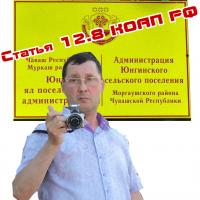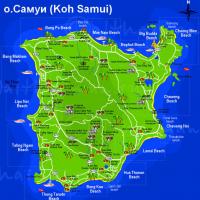Jean baptiste cloots. The meaning of cloots anacharsis in the great Soviet encyclopedia, bse. Activities during the revolution
The section is very easy to use. It is enough to enter the desired word in the proposed field, and we will give you a list of its meanings. I would like to note that our site provides data from various sources - encyclopedic, explanatory, word-formation dictionaries. Also here you can get acquainted with examples of the use of the word you entered.
Cloots Anacharsis
Cloots (Cloots) Anacharsis (real name Jean Baptiste) (24.6.1755, castle Gnadental, near Cleves, ≈ 24.3.1794, Paris), leader of the period of the Great French Revolution; philosopher-educator, publicist. Prussian baron. In 1776 he arrived in Paris, became close with the encyclopedists; developed the ideas of pantheism. Since 1789, a member of the Jacobin Club. During the revolution he took French citizenship, was elected to the Convention (1792). The main thing for K. was the creation of a "world republic." To implement this idea, he demanded (from December 179
declaring war on the European powers, and later, when the war began, continuing it until the creation of a "world union of republics." Cameroon's adventurous cosmopolitan program, dangerous to the revolution in France, prompted M. Robespierre and other Jacobins to oppose him. In 1793, K. advocated forcible de-Christianization. In December 1793 he was expelled from the Jacobin Club, and then removed from the Convention. Delivered to trial by the revolutionary tribunal, K. was executed along with the Ebertists.
1755 - 1794) - one of the active participants in the French Revolution, was a German by birth and came from the Duchy of Cleves, which belonged to Prussia. His real name was Jean Baptiste; he adopted the name Anacharsis at the beginning of the revolution under the influence of his passion for classical antiquity. The idea of \u200b\u200bequality and brotherhood of peoples found in him a passionate follower. In 1790, on behalf of the "Committee of Foreigners", he thanked the Constituent Assembly for the struggle against tyranny.
As an "orator of the human race," he demanded a war with Germany from the Legislative Assembly and donated a significant part of his fortune to the armament of France.
In 1792 he was elected a member of the Convention. He called himself a personal enemy of Christ and any religion and proved in his literary works that only the people can be the sovereign of the world and that only fools can believe in the supreme being, whose cult was established by Robespierre. At the request of the latter, he was brought to trial in the case of the left faction of the Jacobins and executed in 1794 / T. 20/
(1755-06-24 )Since 1793, Cloots advocated a violent "de-Christianization", calling himself a personal enemy of Christ and any religion, arguing in his literary works that only the people can be the master of the world, that only fools can believe in a supreme being, whose cult Robespierre's supporters tried to organize. Cloots supported the replacement of Catholicism with the cult of Reason, believing that the people are now ready to no longer believe in the "priestly tricks" and turn to "true morality."
During the trial of Louis XVI, Cloots voted for the execution of the former king "in the name of humanity."
Arrest and death
In December 1793 he was expelled from the Jacobin Club, and in the spring of 1794, after a decision was made to exclude foreigners from the Convention, he was arrested and brought to trial. When Kloots was taken to the building of the Revolutionary Tribunal, the crowd accompanied him shouting: "Prussian to the guillotine!" He replied: "Let the guillotine, but admit it, citizens, because it is strange that a man who would have been burned in Rome, hanged in London, wheeled in Vienna, will be guillotined in Paris, where the republic has triumphed." In the indictment, he was charged with the intention to restore the monarchy and even “ open the doors of prisons and send the freed criminals against the Convention, destroy the republic by inciting civil war, slander, instigating riots, spoiling morals, undermining social principles, strangling the revolution by hunger».
Anacharsis Kloots, “Jehovah’s personal enemy”, who also died very courageously, on his last night was most upset about the fact that some of the condemned “retained faith in the immortality of the soul,” and tried in every possible way to dissuade them: there will be no immortality, tomorrow from there will be absolutely nothing left for us.
Cloots was executed along with
Anacharsis Cloots
Anacharsis Cloots
Anacharsis Kloots (1755-1794) - one of the active participants in the French Revolution, by birth a German baron from the Duchy of Cleves, which belonged to Prussia. The real name is Jean Baptiste, the name of Anacharsis was adopted at the beginning of the revolution under the influence of passion for classical antiquity. The idea of \u200b\u200bequality and brotherhood of peoples found in him a passionate follower. In 1790, on behalf of the "Committee of Foreigners", he thanked the Constituent Assembly for the struggle against tyranny. In the summer of 1791, he predicted the imminent establishment of "universal sovereignty" and the formation of "one single nation, including all of humanity." Paris was to become the capital of the future world republic. In 1792 he was close to the Girondins, as an "orator of the human race" he demanded a war with Germany from the Legislative Assembly and donated a significant part of his fortune to the armament of France. After being elected to the Convention, he moved to the Jacobin camp. Kloots called himself a personal enemy of Christ and any religion, he proved in his literary works that only the people can be the sovereign of the world, that only fools can believe in the supreme being, whose cult was proposed by Robespierre. In the summer of 1794, after the decision was made to exclude foreigners from the Convention, he was arrested and brought to trial. In the indictment, Klootsu was charged with the intention to restore the monarchy and even "open the doors of prisons and send the liberated criminals against the Convention, destroy the republic by inciting civil war, slander, inciting rebellions, damaging morals, undermining social principles, strangling the revolution by hunger ...". When Kloots was taken to the building of the Revolutionary Tribunal, the crowd accompanied him shouting: "Prussian to the guillotine!" He replied: "Let the guillotine, but admit it, citizens, because it is strange that a man who would have been burned in Rome, hanged in London, wheeled in Vienna, will be guillotined in Paris, where the republic has triumphed."
Reprinted from the site
The French Revolution
http://liberte.da.ru/
Cloots, Anacharsis (real name - Jean Baptiste) (24.VI.1755 - 24.III.1794) - French politician, participant in the French bourgeois revolution of the late 18th century, philosopher, educator and publicist. Dutch by birth, Prussian baron. Cloots led the propaganda of pantheism, a philosophical doctrine that identifies God with nature. From the beginning of the French Revolution, he settled in Paris, becoming close to encyclopedists. In 1792 he was elected to the Convention. Opponent of Catholicism, Cloots in 1793 advocated violent de-Christianization. He demanded the continuation of the war with the anti-French coalition until the creation of a world union of republics. The implementation of such an adventurous cosmopolitan program by Cloots could be detrimental to the interests of revolutionary France. Kloots' program rebuilt against him M. Robespierre and many others jacobins who sought to consolidate the gains of the revolution in France and to ensure her peace and recognition of the European powers. In December 1793, Cloots was expelled from the Jacobin Club, and then removed from the Convention. Brought to trial by the Revolutionary Tribunal, Cloots was executed along with a group of leftist Jacobins, the so-called Ebertists.
Soviet Historical Encyclopedia. In 16 volumes. - M .: Soviet encyclopedia. 1973-1982. Volume 7. KARAKEYEV - KOSHAKER. 1965.
Read on:
French Revolution (chronological table)
Literature:
Engels F., (Letter) to V. Adler dated 4 December. 1889, K. Marx and F. Engels, Soch., Vol. 28, (L.), 1940;
Avenel G., Anacharsis Cloots, l "orateur du genre humain, t. 1-2, P., 1865.
(1755 - 1794) - one of the active participants in the French Revolution, was a German by birth and came from the Duchy of Cleves, which belonged to Prussia. His real name was Jean Baptiste; he adopted the name Anacharsis at the beginning of the revolution under the influence of his passion for classical antiquity. The idea of \u200b\u200bequality and brotherhood of peoples found in him a passionate follower. In 1790, on behalf of the Foreigners Committee, he thanked the Constituent Assembly for the struggle against tyranny.
As an "orator of the human race," he demanded a war with Germany from the Legislative Assembly and donated a significant part of his fortune to the armament of France.
In 1792 he was elected a member of the Convention. He called himself a personal enemy of Christ and any religion and proved in his literary works that only the people can be the sovereign of the world and that only fools can believe in the supreme being, whose cult was established by Robespierre. At the request of the latter, he was brought to trial in the case of the left faction of the Jacobins and executed in 1794 / T. 20/
Watch value Cloots Anacharsis in other dictionaries
Cloots - (Cloots), Anacharsis (real name - Jean Baptiste) (24.VI.1755 - 24.III.1794) - French. politician activist, participant of the French. bourgeois. revolution con. 18th century, philosopher, educator and publicist. Dutchman by ........
Soviet Historical Encyclopedia



